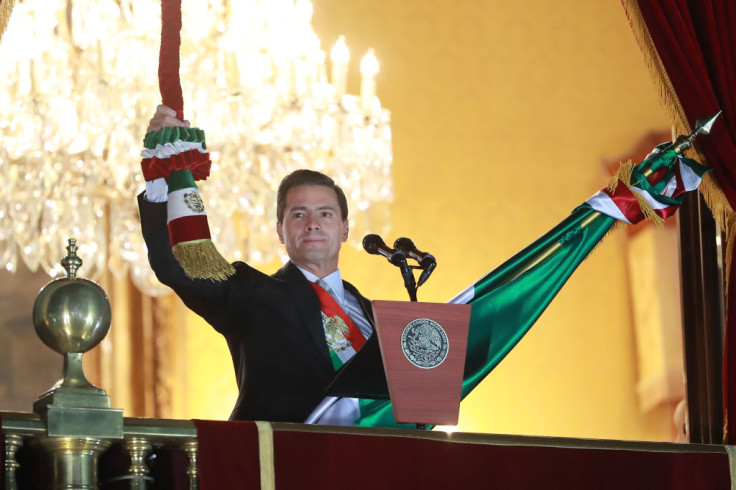
Mexican Attorney General Alejandro Gertz Manero said the country will demand Israel hand over evidence related to accusations that former president Enrique Peña Nieto took $25 million for facilitating deals involving surveillance technology.
Speaking at President Claudia Sheinbaum's daily press conference, Gertz Manero said the administration "has opened a file and we'll ask Israeli authorities that this information can be added to a file so we can move forward."
The official went on to say that cooperation from Israeli authorities is key because, should they confirm the reports, that would allow authorities "to reopen parts of the investigation."
"In the case of Peña Nieto, we'd be missing some evidence. We demanded all authorities who made any kind of claim to ratify it so we can take it to the courts. However, that has not happened as of yet," Gertz Manero concluded.
The request comes after Israeli business outlet The Marker published a report claiming that entrepreneurs Avishai Neriah and Uri Ansbacher negotiated contracts during Peña Nieto's presidency which strengthened ties between cybersecurity companies in Israel and Mexico. Central to those deals was NSO Group, the Israeli firm behind Pegasus, a spyware that has been widely criticized for its use in targeting journalists, dissidents, and activists.
The report, titled "We invested $25 million in the president: The secret arbitration that reveals how Avishai Neriah and Uri Ansbacher divided Mexico," alleges that the two businessmen funneled money to Peña Nieto in exchange for insider access and lucrative government contracts.
Mexican news outlet Animal Político also reported on the investigation, noting that Mexico had long been one of NSO's major clients. During Peña Nieto's presidency, Pegasus was reportedly used to monitor journalists and dissidents. One of the most prominent alleged targets was investigative journalist Carmen Aristegui, known for her reporting on the former president's wealth.
At the center of The Marker's story is a confidential arbitration between Neriah and Ansbacher, originally filed in 2018. A ruling issued in late 2024 detailed how the pair divided their influence over Mexican officials, some of whom were described as "belonging" to one or the other. A key figure, referred to in documents as "the elder man," is widely understood to be Peña Nieto.
To avoid directly naming him, the arbitration refers to "the N," citing both his 2012 election and the conclusion of his term in December 2018. A provisional ruling included in the case states: "Party B (Ansbacher) is claiming reimbursement for half of all expenses jointly incurred by both parties in the investments related to this personality... estimated at $25 million."
Following publication of The Marker's report, Peña Nieto respondedvia his X account, dismissing the allegations as "baseless" and criticizing the article for lacking journalistic standards. "They make careless and malicious claims; the report about alleged contributions is completely false," he wrote. "It's an insinuation with no foundation whatsoever."
© 2025 Latin Times. All rights reserved. Do not reproduce without permission.




